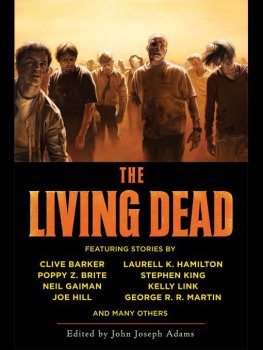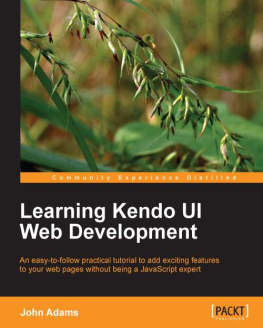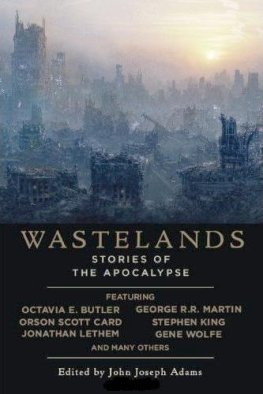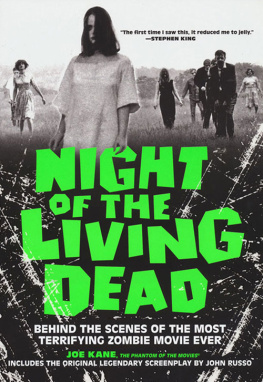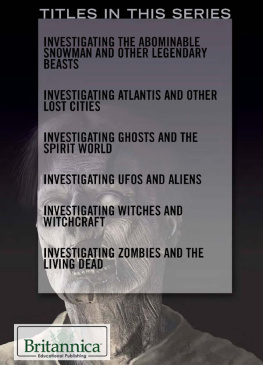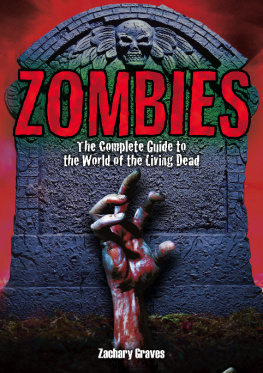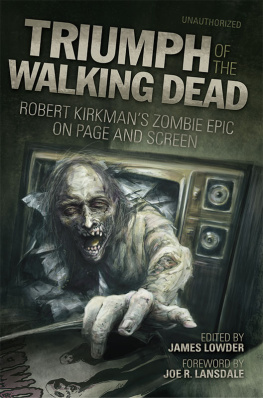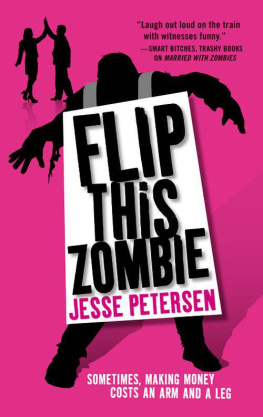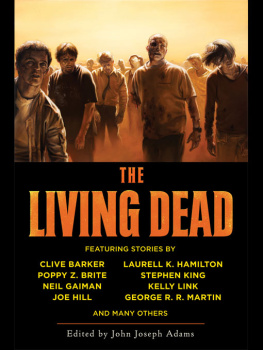THE LIVING DEAD
Edited by John Joseph Adams
For Fiona, and with thanks to John Joseph Adams.
INTRODUCTION
by John Joseph Adams
You know Macumba? Voodoo. My granddad was a priest in Trinidad. He used to tell us, When theres no more room in hell, the dead will walk the earth.
Ken Foree as Peter in George A. Romeros
Dawn of the DeadWhen I first started assembling this anthology, I thought to myself: This is not going to be the sort of book that begins with an origin of the word zombie. Because thats not the point, is it? Zombie fiction is about the unburied dead returning to life and seeking human victims. Its about battling a frightening, implacable foe and imagining what it would be like to survive the end of the world and trying to figure out what to do when the dead wont stay dead.
Regardless of where the word actually comes from, today the word zombie generally refers to the sort of shambling reanimated corpses as depicted in George A. Romeros landmark film Night of the Living Dead. In his short fiction collection Zombie Jam, author David J. Schow explains the influence of Romero: The plain fact is that the aptly-christened Romero zombies have infiltrated the culture to the extent that even people who have never experienced the movies know what zombies are in shortform: Theyre dead, they walk, they want to eat you, and they usually outnumber you.
Most of the stories in this book are either inspired by Romeros unholy trilogyNight of the Living Dead, Dawn of the Dead, and Day of the Deador are a reaction to it. That influence is obvious in much of the fiction contained herein, and authors frequently cite seeing Romeros films as pivotal moments in their youth (and, indeed, their lives).
So why are we so drawn to zombie fiction? Whats so appealing about the idea of the living dead?
John Langan, author of How the Day Runs Down (pg. 469), says that zombiesthe post-Romero zombie that has defined our current concept of the beasthave the virtue of simplicity. While you can trace aspects of their behavior to a host of monsters that have come before (like vampires, they rise from the dead; like ghouls and werewolves, they eat our flesh; like Frankensteins monster, theyre reanimated corpses; like most monsters, they have a particular weakness that will kill them immediately), they boil all that down to the basics: theyre back from the dead, they want to eat us, they can be killed with a shot to the head, he says. I suspect that part of their effectiveness lies in the way they present us to ourselves, by which I mean, if you think about a monster like the vampire or the werewolf, you can see them as aspects of human behavior magnified and embodied; i.e. the vampires connection to various kinds of (taboo) eroticism has been explored ad infinitum, while the werewolfs link to animal violence has also been recognized. With the zombie, what you get is us, pretty much as we are, maybe with a little damage, and we consume one another. No eroticism, no animal violence, just a single, overwhelming appetite. Thats simultaneously very straightforward and very disturbing.
David Barr Kirtley, author of The Skull-Faced Boy (pg. 331), says that there are two reasons we find zombies appealing. One, I think theres an enormous segment of our brain thats evolved for running away from packs of predators, and zombie stories give us a rare opportunity to take this primal part of our psyches out for a spin, he says. And, two, zombies are a great metaphor. The great mass of humanity often comes across to us as unreasoningly hostile and driven to consumption, and the image of the zombie captures this perfectly.
The popularity of zombies comes from the fact that the vampire that we all loved got lost, says The Age of Sorrow (pg. 343) author Nancy Kilpatrick. A lot of us miss the old resuscitated corpse, the ugly vampire, the mindless one that cant be reasoned with, she says. I think zombies were there already and evolved from the Haitian Voodoo zombie to the Romero zombie that evolved further over the course of his film series so that the cause of zombification became different and rather than being bland slaves, they turned into full-blown predators, en masse. Most of us miss the predatory vampire. Zombies I think have ascended in popularity because they not only fill that archetypal void, but they also reflect societys fear of something overtaking us, making us less-than-human, or the victim of that less-than-human. Its especially traumatizing when less-than-human is family, friends and neighbors, but hey, strangers, in numbers, will do it for most of usI think theres an inherent fear of mindless mobs in all of us. Its the hordes that swarm over you. Add to that our unconscious horror of our rampant consumption in the first world and its like a hundred-thousand inhuman Pac-Men, eating everything in sight. Theres not much in the horror field that terrifies me, but zombies do. Their driven, single-minded quality is both terrifying and awe-inspiring. I think its what all sane people fear, being confronted by something/someone that has your destruction at heart and which/who cant be stopped.
And now a note about the stories that are in this book and the ones that arent.
In the process of assembling this anthology, I read more zombie stories than you could possibly imagine, and I found more good ones than could possibly fit in one volume, even a mammoth tome like this one. So, in order to help narrow down my selections, I created a few loose guidelines for myself.
First, I wanted to avoid taking too many stories from any one source.
Second, I wanted to avoid taking too many stories from other zombie anthologies. I discovered a lot of great zombie fiction elsewhere and thought that this book would be more valuable to zombie fans if it were to collect that material. Many hardcore zombie aficionados will have already read John Skipp and Craig Spectors zombie anthologies (Book of the Dead, Still Dead, and Mondo Zombie) or James Lowders Eden Studios zombie anthologies (The Book of All Flesh, The Book of More Flesh, and The Book of Final Flesh), so rather than reprint a large number of stories from those books, I reprinted a few from those volumes, but focused my efforts elsewhere. (And for those of you who havent read any of those other zombie anthologies, well, go dig them up.)
Third, I deliberately didnt always choose the obvious story from an author. (Assuming, of course, that the stories I included instead were just as good.) For instance, I didnt reprint Joe R. Lansdales On the Far Side of the Cadillac Desert with Dead Folks or David J. Schows Jerrys Kids Meet Wormboy because they each have written other great zombie stories as well, and I figured if youve read one story by either of them, it would have been that one.
Fourth, I didnt want to use anything that felt like an excerpt of a larger work, so, for example, that meant omitting anything from Max Brookss excellent zombie novel World War Z. (Although the novel is episodic, reading the episodes separately robs them of some of their power, I thought; instead, Ill just urge you to go buy it right now. Well, after youve bought this book.)
And finally, I wanted the anthology to include a wide range of zombie fiction, incorporating all types of zombies, from the Romero-style zombie to the techno-zombie and everything in between. So herein you will find the dead mysteriously returned to life hungering for human flesh, corpses reanimated by necromancers, corpses reanimated by technology and/or science, voodoo zombies, revenants, and other, less easily categorized zombies.
But getting back to the appeal of zombies So what about it? Why do

